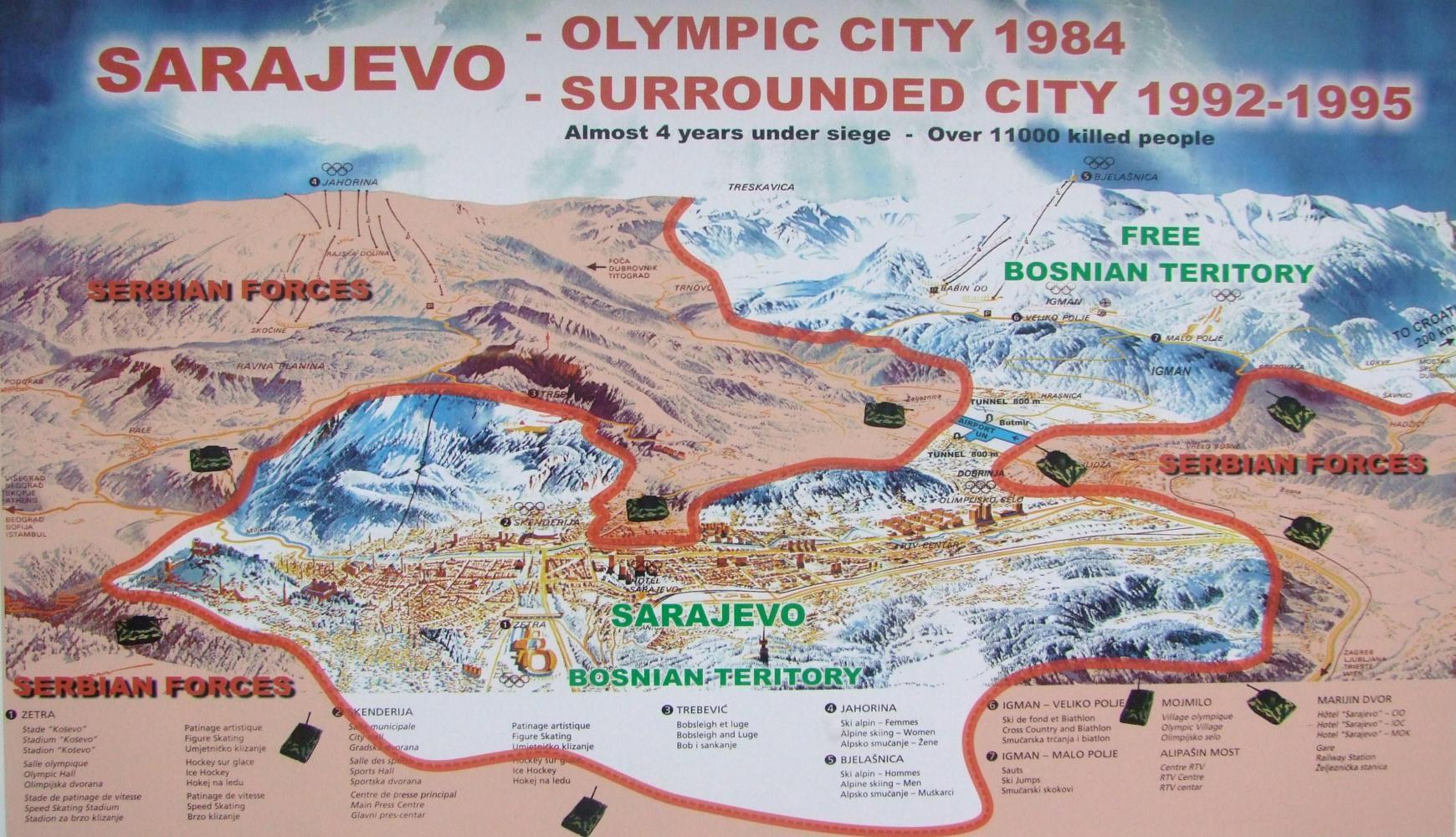December 27, 2013
Nobody Ever Thought It Would Happen Here.
About a week ago Swedish musician Peter LeMarc called at the hostel with his wife and daughter who, is here in Sarajevo doing a project and lives with hostel owners, Ida and Alvina's mother. They sat on the sofa and he talked about a visit to Yugoslavia in the seventies. Music being his thing, he said the record shops had a bigger selection of vinyl than record shops back home in Sweden.
Its the same story from those old enough to remember the old Yugoslavia. They were good times. All have nothing but good things to say about Tito the country's post war communist leader up until his death in 1980. He united the difference ethnic groups: the Croats, Serbs, Bosnians et cetera. Although an Eastern Block country until 1989, they had the best of east and west; with free healthcare and education, while private enterprise was allowed; for example, restaurants and hotels were family owned and run. Furthermore, citizens were free to travel to the west. And generally there was a high standard of living. So it's a shame such sophisticated people and a country descended into barbarism in the nineteen-nineties.

| Heart | 1 | Comment | 0 | Link |
I've been in Sarajevo awhile now and seen some of the sights, but there remained the tunnel underneath the airport to see.
There was a tour from the hostel today. Ida is both driver and guide. There's just me and one other guy.
We drove out from the city-centre west along the main highway in and out of town. Ida points to the left at a district of high-rises saying "that is where most of the city's Serbian population lived. This road we're on now became known as snippers-alley during the siege. The snippers positioned on the rooftops of those blocks over there shot at anyone travelling upon this road" The snippers made no exception for children. We'd passed the murdered children memorial earlier.
We eventually turned off in the city's western outskirts and began driving along residencial streets; turning left, then right and left again. Ida said "the first time coming here I got lost" We could then see to the left open ground and then the airport with awaiting planes which was under UN control during the war. It's located in a narrow corridor which connected the besieged city with territory under Bosnian control on the outside. On both sides is high ground, as is the whole of the city's perimeter, which was held by Serbian forces.
The airport was safe from shelling, so an eight-hundred metre long tunnel was dug underneath it. It was the only route in for food, medicines, fuel and weapons for a Bosnian army of quickly recruited civilians drawn together in defence of their city.
We finally pull up outside a house. The tunnel opening is in the back garden. The house is now a museum dedicated to the siege run by a grandson of the old woman that owned it. In the basement we view a film of the tunnel being dug by picks and shovels, the owner, the old woman ladling out water to thirsty miners. Later when it's complete, we see the goods being carried through. We see a trolley of cardboard boxes from relieve organisations on the outside being offloaded at this end and a man ticking off each on a clipboard. Most of the stuff was carried though on the back by individuals; all sort of things necessary to survive. There's a man leading, or rather being led by a goat anxious to get out to the daylight.
The film continues with horrific coverage of the constant shelling of the city. The whiz of rockets coming in in slow motion from Serb positions on the hillsides, flying across the city and crashing into their target building, later seen engulfed in flames and people trapped trying to escape. They especially targeted buildings of cultural relevance such as the national library which was hit and gutted by fire.
On the drive back to town we pass fire gutted blocks left untouched since the siege. Ida said "There were days that were completely quiet and still. We knew though that these days were just the calm before the storm. On these days they were getting drunk and taking drugs. The following day would come the most intense shelling of the city."
A lot of money has come from the international community to repair the city. But according to Ida the perpetrators have paid nothing. Everybody knows who they are. Some enriched themselves through the war and are now in powerful positions and are untouchable.
| Rate this entry's writing | Heart | 2 |
| Comment on this entry | Comment | 0 |